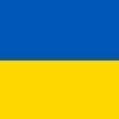180 Baht Charges for ATM.
-
Recently Browsing 0 members
- No registered users viewing this page.
-
Topics
-
Popular Contributors
-
Latest posts...
-
61
Trump Wants Alcatraz Back: ‘The Rock’ to Cage America’s Worst?
Trump why don’t you stick just making billions off your big coin sales and dinners unbelievable a conflict of interest and his kid gives over to our country does a deal for 2 billion and what do you think Trump’s going in a week or two Arab countries that GUY has made over $2 billion in less than 150 days Now you really think he cares about America with a terrible dude as he says instead of buying $30 I’ll be happy with two -
40
Crime Brawl Between Foreign Tourists Erupts in Central Pattaya, Three Injured
Holy smokes. that guys's a BRUTE. -
935
What Movies or TV shows are you watching (2025)
I don’t know if anyone is interested a new series - always interesting - it seems to have moved on from the actual waves of nazare in series of 1 and 2 - now, amongst other stuff, long term effects of big wave surfing in e01. -
11
Alcohol but not a real problem
If you went through all that throat cancer stuff and radiation launches not think about drinking think about living a healthier lifestyle or at least wait for it to be held completely the last thing I’d be thinking about is having a drink or lighting a cigarette just my two cents TIT -
78
Crime British Tenant Trashes Pattaya Rental, Landlord Seeks Legal Action
A "no comment" would effectively be a negative review and my agents would not lease to that tenant. -
78
Crime British Tenant Trashes Pattaya Rental, Landlord Seeks Legal Action
Not paying rent the electric bill is bad behavior…but she is getting high for free…she says she is devastated…no, a family member killed in an auto accident that is devastating…..garbage does not equal damage place looks dirty but no examples of damage were given…why was that left out of story?
-
-
Popular in The Pub
-




.thumb.jpeg.d2d19a66404642fd9ff62d6262fd153e.jpeg)




Recommended Posts
Create an account or sign in to comment
You need to be a member in order to leave a comment
Create an account
Sign up for a new account in our community. It's easy!
Register a new accountSign in
Already have an account? Sign in here.
Sign In Now